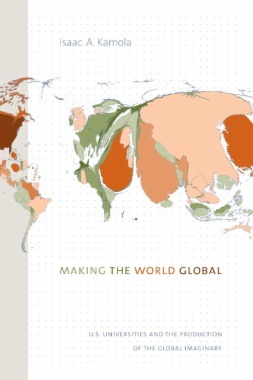Following World War II the American government and philanthropic foundations fundamentally remade American universities into sites for producing knowledge about the world as a collection of distinct nation-states. As neoliberal reforms took hold in the 1980s, visions of the world made popular within area studies and international studies found themselves challenged by ideas and educational policies that originated in business schools and international financial institutions. Academics within these institutions reimagined the world instead as a single global market and higher education as a commodity to be bought and sold. By the 1990s, American universities embraced this language of globalization, and globalization eventually became the organizing logic of higher education. In Making the World Global Isaac A. Kamola examines how the relationships among universities, the American state, philanthropic organizations, and international financial institutions created the conditions that made it possible to imagine the world as global. Examining the Center for International Studies, Harvard Business School, the World Bank, the Social Science Research Council, and NYU, Kamola demonstrates that how we imagine the world is always symptomatic of the material relations within which knowledge is produced.
- Cover
- Contents
- Preface
- Acknowledgments
- Introduction: Globalization and the World
- Part I. Reproducing the National Imaginary
- 1. “Creative Imagination” Is Needed: W. W. Rostow and the Rise of Modernization as a National Imaginary
- 2. “The World’s Largest … Development Institution”: Robert McNamara and the National Development Imaginary
- Part II. Marketing the Global Imaginary
- 3. “Marketing Can Be Magic”: Theodore Levitt and Globalization as a Market Imaginary
- 4. “Realities of the Global Economy”: A. W. Clausen and the Banker’s Global Imaginary
- Part III. Reproducing the Global University
- 5. “Stakeholders and Co-investors ... Have ‘Reform’ on Their Mind”: Kenneth Prewitt and the Defunding of Area Studies
- 6. “An Opportunity to Transform the University and, Frankly, the World”: John Sexton and the Global Networked University
- Conclusion: Reworlding the Global
- Notes
- References
- Index
- A
- B
- C
- D
- E
- F
- G
- H
- I
- J
- K
- L
- M
- N
- O
- P
- Q
- R
- S
- T
- U
- V
- W
- Y
- Z

